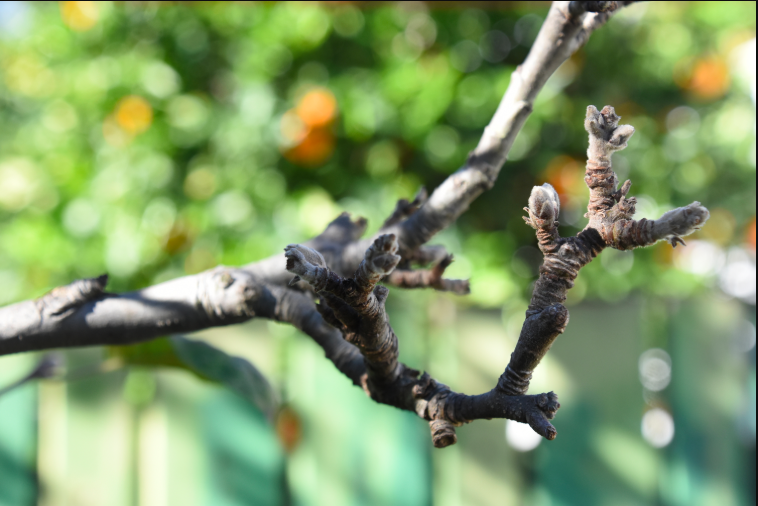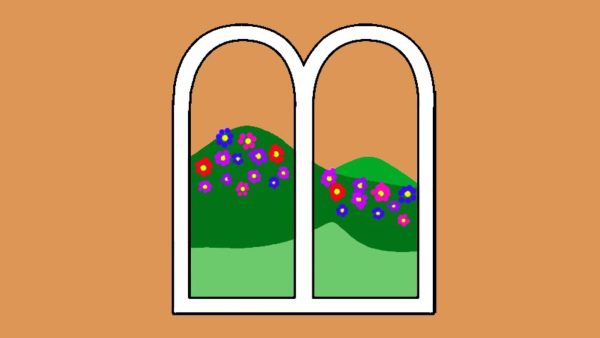Tu B’Shvat: Your reflection in the fruit
Tu B’Shvat this year fell on Jan. 21, less than a week after four straight days of rain brought Los Angeles’ rainfall for the year to more than 150 percent of normal.
BEGINNING: Buds began to swell on an apple tree in Pico-Robertson today — Jan. 21, which in the Hebrew calendar was Tu B’shvat.
To many of us, Tu B’Shvat is nothing more than that one day a year when our elementary school teachers fed us fruit in class and asked us if we wanted to plant a tree in our name. However, there is much more to this widely overlooked holiday.
Tu B’Shvat, which literally means the 15th of the month of Shvat, is what separates this year from the last based on the first sprouting of fruit trees, signifying a new spring. At this point in the year, the rains are said to have fallen in Israel and the first fruits on the trees are beginning to grow, meaning it has now been determined how bountiful those trees will be in the upcoming year. It works well this year in Los Angeles, where recent heavy rains occurred just as area fruit trees have been forming their earliest buds.
But rain or no rain, many believe that how bountiful the trees are depends on how deserving the Jewish people are, according to their actions in the past year. In that way we see many parallels between Rosh Hashanah, the new year of humanity, and Tu B’Shvat, the new year of the tree. In a sense, we are evaluating the potential of the tree on this first day of its new year, while reflecting on its previous year, and can likewise be evaluating our own past and potential improvement in the future.
On this first, representative day in which it is determined how bountiful the tree will be in the upcoming year, two factors are crucial: rainfall, which is at God’s will, and our own personal treatment of plant life. On this day we must take a step back and appreciate the remarkable world God has provided for us, and contemplate whether we are treating it with the respect it deserves in our everyday life.
Even though it’s not Rosh Hashanah, this also creates an opportunity for us to reflect on the decisions we’ve made this past year and consider how we can improve through our own actions in the following one, rather than simply accepting our fortune as something unalterable — like last year’s rain. In truth, there is much in our lives that we simply accept and attribute to God, instead of working out our problems ourselves, as God intended.
Therefore, there is much deeper way to look at the sentiment behind Tu B’Shvat. Although on the surface it is the new year of the tree, it is very much correlated with the actions of the Jewish people. It represents a new beginning and a time to reflect on our actions this past year, and use them to improve in the upcoming one. It is a time to appreciate the beautiful, bountiful world that God has blessed us with — which creates an opportunity to reflect not only on the bountifulness of our trees and physical blessings, but on our spiritual blessings throughout the year in every aspect of our lives.
It is a chance to reflect on our choices and actions throughout the year, and determine whether or not we are happy with the person we have become. Whether it be as a Jew, a friend, a family member, or person overall, or as a citizen in the natural world.
Therefore this Tu B’Shvat, I advise you to look at your reflection in the shiny fruit you’re likely to consume, and decide whether you are satisfied with the person staring back at you. Look to the future with your goals set, let your potential be known, and strive for greatness.
Happy New Year of the tree! Tu B’Shvat Sameach!











